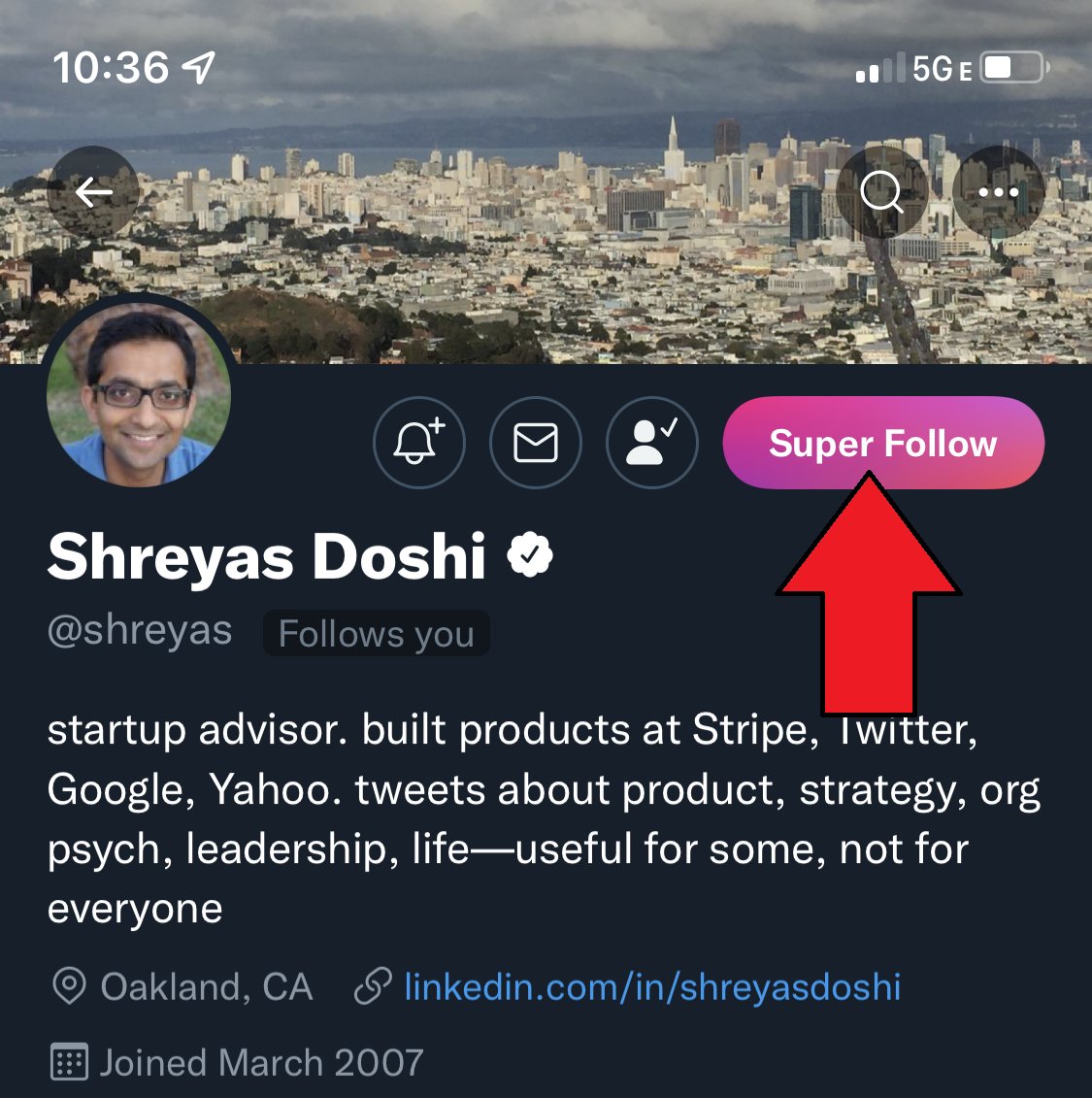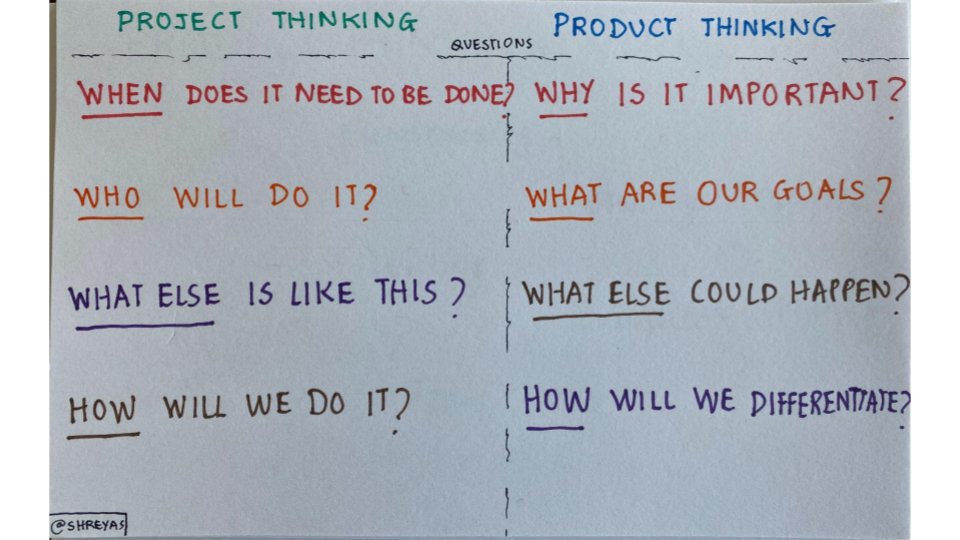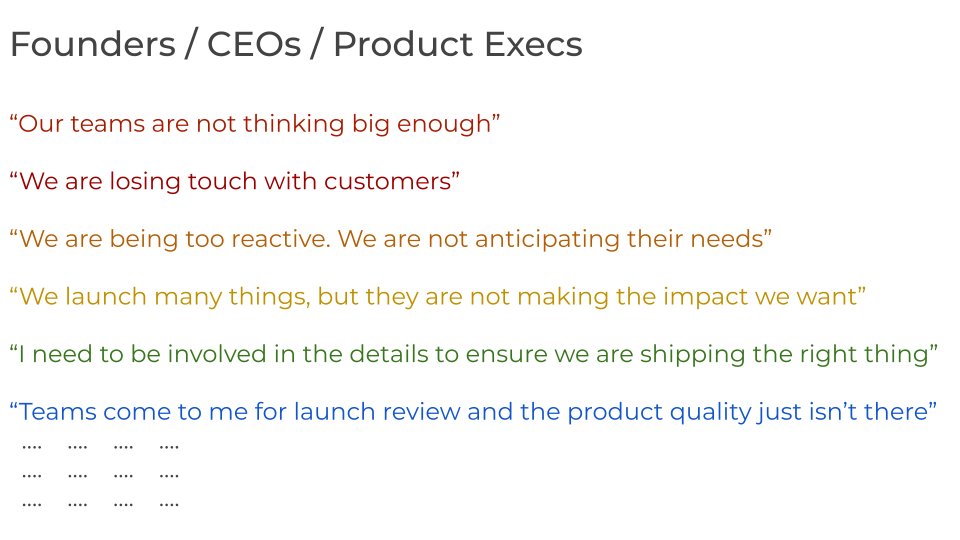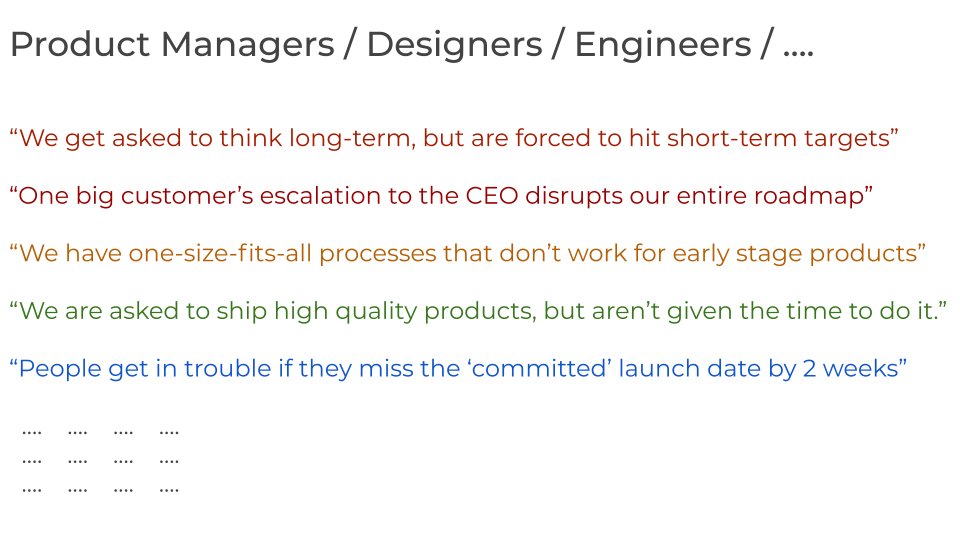
From scrolling on Twitter, one might conclude that it is a terrible idea to work at GAMMA (Google Apple Microsoft Meta Apple) companies & other tech megacorps.
While that might be true for some people, here are 7 good reasons why it is smart to consider working at a GAMMA corp:
While that might be true for some people, here are 7 good reasons why it is smart to consider working at a GAMMA corp:
1) Thinking Big
If you’re a person with High Agency, GAMMA corps will instill in you the habit of thinking big. Like, really big
I didn’t think much of this while I was at GAMMA corps, but once I left to go elsewhere, it was striking how rare this is at startups & midsized corps
If you’re a person with High Agency, GAMMA corps will instill in you the habit of thinking big. Like, really big
I didn’t think much of this while I was at GAMMA corps, but once I left to go elsewhere, it was striking how rare this is at startups & midsized corps
What’s more, founders of the very best startups tend to be extremely ambitious themselves. And post-PMF, they often need to hire leaders who are neither afraid of thinking big nor get intimidated by 10X/100X goals. Working at a GAMMA corp is a fantastic way to build this muscle.
2) Making an Impact
In career conversations, I hear regularly from people that the main reason they want to join a startup is that they want to make an impact. At this point, I probe further, and I find that in at least ½ the cases, the person means “making an impact on society”
In career conversations, I hear regularly from people that the main reason they want to join a startup is that they want to make an impact. At this point, I probe further, and I find that in at least ½ the cases, the person means “making an impact on society”
At that point, I have to remind them that if making a positive impact on society is a priority, joining a startup is not a very smart decision. Especially if the person is mid-career or advanced career, their odds of making a major societal impact are much higher at a GAMMA corp.
You see, when it comes to societal impact through tech, here’s what should make GAMMA corps a no-brainer:
a) Massive resources
b) Multiple major products
c) Many projects focused on societal impact
Plus, GAMMA corps are always looking for talented people for these initiatives.
a) Massive resources
b) Multiple major products
c) Many projects focused on societal impact
Plus, GAMMA corps are always looking for talented people for these initiatives.
3) Financial Security
While for some odd reason it isn’t cool to openly talk about this in some parts of the world, financial security matters. A lot. If you’re a talented, energetic person who can work N years at a GAMMA corp, it is the most surefire path to financial security.
While for some odd reason it isn’t cool to openly talk about this in some parts of the world, financial security matters. A lot. If you’re a talented, energetic person who can work N years at a GAMMA corp, it is the most surefire path to financial security.
And if after being at a GAMMA corp for N years you can manage to keep your high agency, energy, ownership mindset alive (plenty of people I know have done it), this financial security will let you take greater risks with way less personal stress, as a founder or startup employee.
And don’t forget:
Making this choice does not mean you are “a loser”. Even if you get judged by a startup pal, remember that the person judging you isn’t going to pay for your mortgage, your child’s college, a loved one’s healthcare costs. Don’t lose sight of what truly matters.
Making this choice does not mean you are “a loser”. Even if you get judged by a startup pal, remember that the person judging you isn’t going to pay for your mortgage, your child’s college, a loved one’s healthcare costs. Don’t lose sight of what truly matters.
4) Learning the Art of Influence
Yes, it is often hard to get things done at GAMMA corps. Sometimes excruciatingly so. I get it. But there is a flip-side to it. With attention & practice, you will become really good at influencing people, especially as a PM or a manager of a team
Yes, it is often hard to get things done at GAMMA corps. Sometimes excruciatingly so. I get it. But there is a flip-side to it. With attention & practice, you will become really good at influencing people, especially as a PM or a manager of a team
Influence, when practiced with integrity, is an invaluable skill. Working on gnarly challenges at Yahoo early in my PM career & at Google was great training ground for me as a leader & I’ve reaped many benefits later in my career & personal life (e.g. home remodeling projects 🙂)
5) Learning Operations
You can learn a lot by watching how GAMMA corps are run. Almost anyone at any level can get a glimpse of these company operations becos most of these corps & their leaders are quite transparent about what’s being worked on, how & why (Apple is an exception)
You can learn a lot by watching how GAMMA corps are run. Almost anyone at any level can get a glimpse of these company operations becos most of these corps & their leaders are quite transparent about what’s being worked on, how & why (Apple is an exception)
Within GAMMA, generational companies are extra-special. These are companies that end up defining our industry (Amazon being the current generational company, Google being the prior one, and Microsoft prior to that). At their peak, it’s great to watch & learn from their operations
6) Building a Strong Network
If, like me, you didn’t go to a top 10 college, working even for a few years at a GAMMA corp can boost your network better than anything I know. This applies at any stage, but the network (and brand) compounds best if you do it earlier in your career.
If, like me, you didn’t go to a top 10 college, working even for a few years at a GAMMA corp can boost your network better than anything I know. This applies at any stage, but the network (and brand) compounds best if you do it earlier in your career.
That said, many GAMMA employees fail to take full advantage of the sheer density of talent around them.
So here’s a great hack: ask each of your immediate team members to name the 5 best people they know at the company. Grab a (virtual) coffee with them. Build rapport. Repeat.
So here’s a great hack: ask each of your immediate team members to name the 5 best people they know at the company. Grab a (virtual) coffee with them. Build rapport. Repeat.
7) Creating a Balance, on your terms
Probably the most tweeted criticism of GAMMA corps on this app is that you don’t have to do much work there. From my personal experience, that’s a gross generalization. IME, most of the best teams at GAMMA corps are very ambitious & energetic.
Probably the most tweeted criticism of GAMMA corps on this app is that you don’t have to do much work there. From my personal experience, that’s a gross generalization. IME, most of the best teams at GAMMA corps are very ambitious & energetic.
But, there’s also another angle here. Working at a GAMMA corp gives you the flexibility to go fast at times, or move slower, on your own terms.
And there’s nothing wrong with that. Remember, we all have less time than we think we do: with our parents, our children, our friends.
And there’s nothing wrong with that. Remember, we all have less time than we think we do: with our parents, our children, our friends.
All in all, if you’ve never worked at a GAMMA corp, don’t automatically reject the idea becos you only see GAMMA criticism in the media or on this app. And if you’re still saying “I’d never work at a GAMMA corp,” that’s fine too. Like most things in life, it is not for everyone🙂
Back to the top of this thread:
https://twitter.com/shreyas/status/1503588234806190085
Of course, the 2nd A is supposed to be Amazon (as much as I love Apple 😄)
Adding some more resources 👇🏾
On thinking big and how that can spur ingenuity and greater achievement, check out this snippet (h/t @gummadi), at the 37:20 mark
On high agency:
linkedin.com/pulse/high-age…
linkedin.com/pulse/high-age…
While this thread is focused on a topic that is seldom discussed openly on Twitter, it is also obvious that there are GAMMA corps have their challenges.
Here's a thread on some challenges with GAMMA corps, and how startups can turn them into an advantage:
Here's a thread on some challenges with GAMMA corps, and how startups can turn them into an advantage:
https://twitter.com/shreyas/status/1332065861813694465
A thread that summarizes my key thoughts on career choices, and links to a few other useful resources on this topic:
https://twitter.com/shreyas/status/1410989291895869445
• • •
Missing some Tweet in this thread? You can try to
force a refresh










